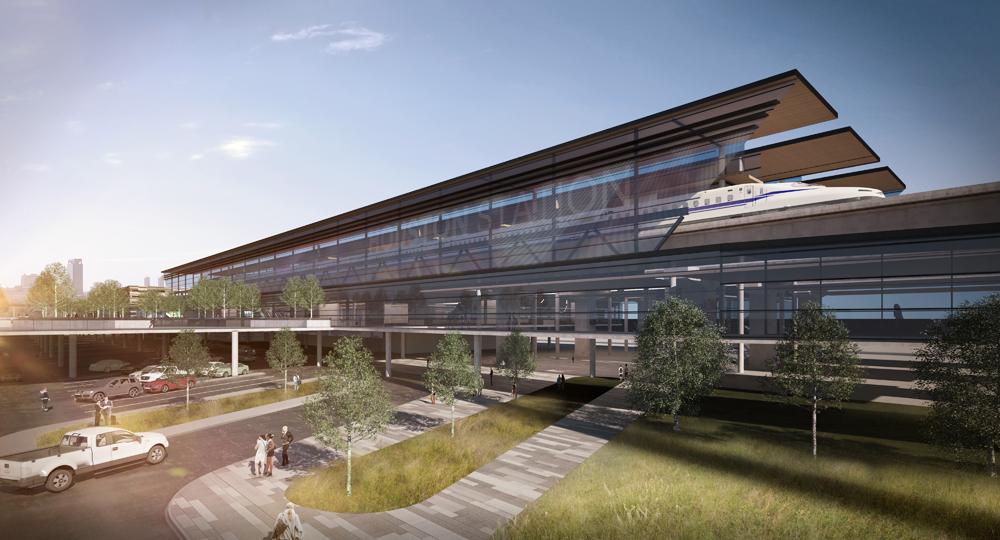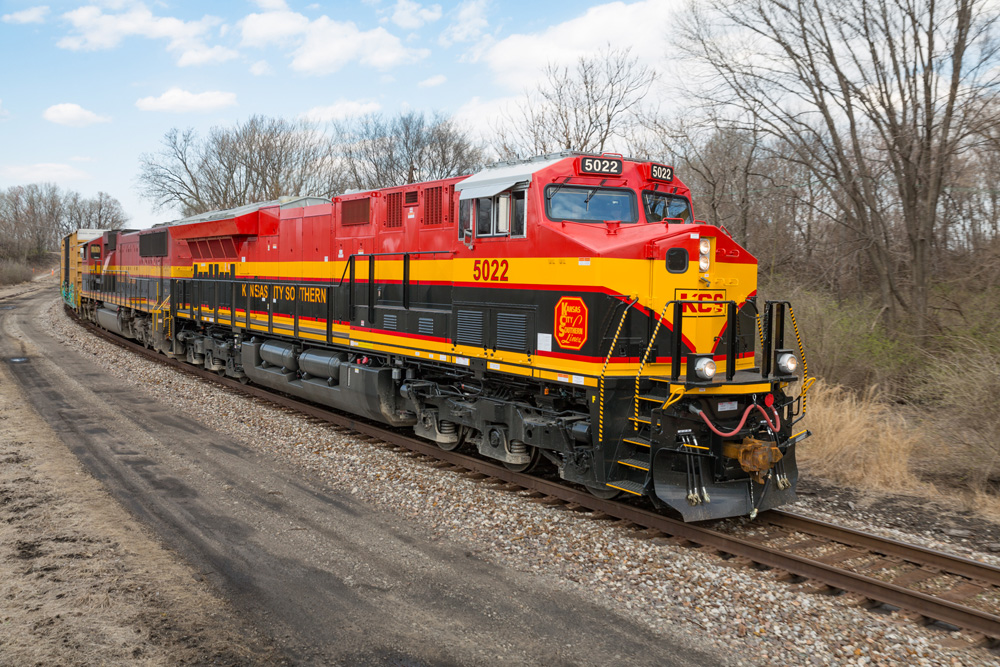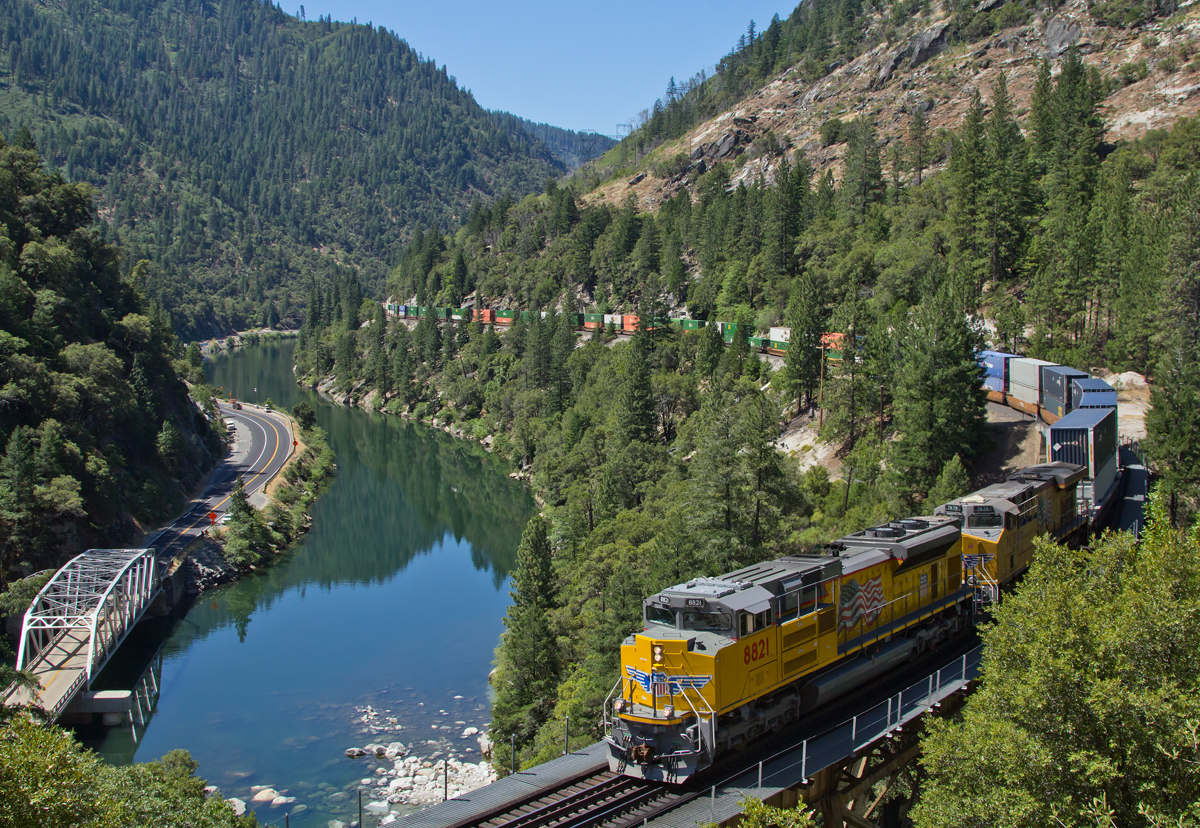Dallas-Houston high speed rail

AUSTIN, Texas — Two U.S. Congressmen from Texas expressed heavy opposition towards proposed federal funding for a planned high-speed rail service between Dallas and Houston. Amtrak announced its partnership with the Texas Central Railroad LLC for the project in August 2023 and jointly submitted federal grant applications for both study and design work. [See “Amtrak working with Texas Central to ‘explore opportunities’…” News Wire, Aug. 9, 2023].
In a Sept. 28 letter from U.S. Congressmen Jake Ellzey (R-Texas) and Michael McCaul (R-Texas) urge Amit Bose, FRA administrator, and the U.S. Department of Transportation to reject the following applications from North Central Texas Council of Governments, Amtrak, and Texas Central:
- FY22 Consolidated Rail Infrastructure and Safety Improvements (CRISI) Program
- FY22 Federal-State Partnership (FSP) for Intercity Passenger Rail Program
- FY22 Corridor Identification and Development Program (Corridor ID Program) funding for the Amtrak Texas High-Speed Rail Development Project
“Since 2009, when the project was first proposed, Texas Central has secured very few parcels of property and is attempting to acquire private property using eminent domain,” as stated in the letter. “It will exclusively run a type of train manufactured only in Japan using a unique track that is incompatible with any existing system in the United States.
“At its core, this project is intended to take land from American citizens and put it under the control of a Japanese company, which is itself subsidized using money from U.S. taxpayers.”
According to the Texas Central website, the proposed 240-mile, high-speed route would offer a travel time of less than 90 minutes between the two cities. The company has received an FRA waiver to operate Japanese-built Shinkansen trainsets along a planned right-of-way that would follow existing high-voltage power lines for more than half the route [See “Going Big,” Trains Magazine, December 2019].














Interesting that the congressmen make no mention of the Spanish built toll roads and the portion of the tolls that goes directly to that country.
Also, in Texas it seems that the exercise of eminent domain is terrible if you want to improve public infrastructure and mobility but okay if you want to build sports facilities that benefit already wealthy private individuals.
The biggest obstacle was all the nuisance lawsuits filed by 3rd parties who were just naysayers and had no real direct impact from TXHSR. The original team made very generous compensation to land owners along the ROW. Bureaucracy and NIMBYs killed what would have been an excellent alternative to air and automobile.
The idea of expanding current right of ways had been explored here in the past. The Lone Star Trail District was working with UP in the early 2000’s to do it. Sadly, UP pulled the plug on the cooperation and that ended it.
The plans LSTAR had were very well thought out and presented. It would have connected areas all along the 35 corridor in central Texas and beyond from the timelines they had shown. Since the ROW is PRIVATELY owned there isn’t much incentive for the owners to allow passenger rail or any type.
The initial proposal was that this line would be completely funded by private money. They did not realize that there was no price that farmers would sell their precious land for a right of way. So, the project is not likely to be completed until some other state gets HSR. Then Texans will say “We need thaaat.” At which time Texas got will support. Most fickle bunch of people in the US.
Joseph: From your statement of “100 MPH” it is obvious you have not driven I-35 in Texas. It is difficult to average 60 MPH. No matter the transportation method from Dallas to Houston or via I-35 to San Antonio you still have the problem of needing a vehicle to use when you arrive. It goes where your want , when you want , something “public transportation” down here does not do. And by the way, we don’t have all the taxes necessary to pay for such transportation. And, we like it that way.
My biggest complaint with this project is that it includes Amtrak. The government needs to get out of the passenger rail business for anything to succeed. If Amtrak is involved, I’m with the Congressmen. Cancel it and use the money to build higher speed rail on existing ROWs.
“It will exclusively run a type of train manufactured only in Japan…” then I agreeing with what Charles says (gasp LOL), what does being built in Japan have anything to do with it. The Japanese have a pretty damn good rail network and expertise in HSR compared to the pathetic state of passenger rail in the United States. Meanwhile these two GOP members bow to oil interests and have no problem looking the other way as manufacturing jobs have gone to Communist China over the years along without being able to have their House in order.
The proponents of Texas Central have not been able to make a go of it. The management team departed. So, to salvage the project, the proponents are turning to the American taxpayers to bail them out.
The biggest need for better passenger rail in Texas is along the I-35 corridor between DFW and San Antonio. Rather than tearing up thousands of acres of farm and ranch land for a new railroad, existing rights-of-way could be upgraded for better passenger rail.
Texas Central’s proposal envisioned just one stop between Dallas and Houston. Upgraded service along the I-35 corridor could serve Hillsboro, Waco, Temple, Austin, San Marcos, and San Antonio. These cities are too close to make flying a good alternative to driving; they are idea for passenger rail as an alternative to driving. Motorists are the biggest potential source of customers for enhanced passenger rail.
Better passenger rail does not mean emulating the Japanese, Chinese, etc. It means offering a convenient, dependable, economical alternative to driving that will get folks there quicker than driving.
No surprise here. These Texas politicans are against everything concerning rail. Texas is one of those states where almost everybody drives and owns a car and they love to race along those highways at nearly 100 mph. These politicans should stop hiding behind the excuse for their opposition to this rail line that it is being built or funded through Japanese interests. The Japanese are railroad professionals and know how to build and operate trains. How about the powerful oil and gas industries that have so many public officials in their pockets and exert influence over any decisions that affect them and who see this high speed rail line as a threat to their business and will siphon {pun intended} potential riders and users away from their cars. If you research history, Texas has always been a sore spot for any rail growth and sxpansion. Back in the days of the Wild West, Texas cattle barons and farmers as well as the cowboys who drove the herds to the nearest rail head for shipment to Chicago also opposed the railroads building their lines across their land and territory. It is surprising and amazing that Dallas even has any public transit or rail service today. A few years ago the local politicans there opposed building and having public transit service in the city or surburbs. Besides if passenger rail travel is to grow and survie in this country, it will have to be up to private interests whether foreign or American to build and operate these lines and services.
Joseph C. Markfelder
Someone please educate me. What is “unique ” about the track?
Someone please educate me. What’s wrong with a Japanese company doing biziness in USA? Lots of Japanese cars in my neighborhood including two in my garage. Lots of jobs in Indiana, Ohio, Kentucky, Tennessee, Texas, Mississippi, and other states, Americans working for Japanese auto companies.
I’m not taking a position for or against this Texas HSR project. Like George Pins (above) I’m questioning the judgment of these politicians.
$20 says Southwest Airlines bought them off. They pulled this same crap in the 90s to maintain their monopoly on the market.